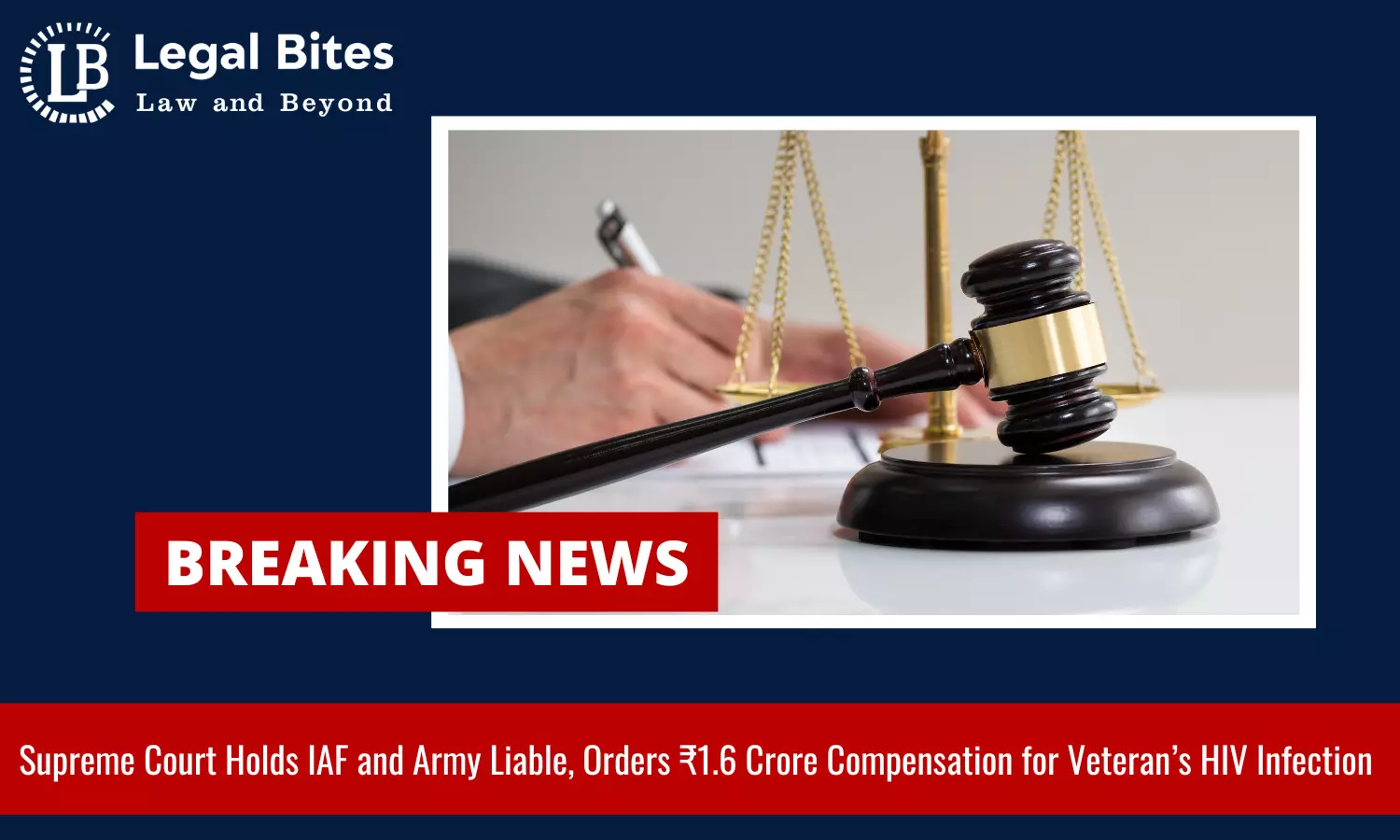Supreme Court Holds IAF and Army Liable, Orders ₹1.6 Crore Compensation for Veteran’s HIV Infection
The Supreme Court of India has ruled that the Indian Air Force (IAF) must pay approximately ₹1.6 crores in compensation to a retired veteran who contracted HIV during a blood transfusion at a military hospital.

Supreme Court Holds IAF and Army Liable, Orders ₹1.6 Crore Compensation for Veteran’s HIV Infection
The Supreme Court of India has ruled that the Indian Air Force (IAF) must pay approximately ₹1.6 crores in compensation to a retired veteran who contracted HIV during a blood transfusion at a military hospital. In the case of CPL Ashish Kumar Chauhan Retd vs. Commanding Officer and Others, a bench of Justices S Ravindra Bhat and Dipankar Datta held the IAF and the Army vicariously liable, jointly and severally, for their conduct.
The case originated from the veteran's appeal against a National Consumer Disputes Redressal Commission (NCDRC) judgement, which had dismissed his plea for ₹95.31 crores in compensation for medical negligence that led to his HIV infection. The incident occurred during Operation Parakram in 2002 when the veteran fell ill and received a blood transfusion at a military hospital in Jammu and Kashmir. In 2014, he was diagnosed with HIV, and it was later determined that the infection was linked to the blood transfusion. Subsequently, he was discharged from service and denied a disability certificate due to a lack of provision.
"The present case has demonstrated again and again how dignity, honour and compassion towards the appellant were completely lacking ... the record displays a sense of disdain, and discrimination, even a hint of stigma, attached to the appellant, in the attitude of the respondent employer. Although this court has attempted to give tangible relief, at the end of the day it realises that no amount of compensation in monetary terms can undo the harm caused by such behaviour which has shaken the foundation of the appellant’s dignity, robbed him of honour and rendered him not only desperate even cynical," the bench lamented.
Importantly, the court also highlighted the Human Immunodeficiency Virus and Acquired Immune Deficiency Syndrome (Prevention and Control) Act, 2017 (HIV Act), which imposes obligations on various authorities to ease the hardships of HIV patients.
The court issued several directives for the Central and State governments, courts, and quasi-judicial bodies to enforce the HIV Act, including providing diagnostic facilities for antiretroviral therapy, protecting the property of children affected by HIV, and conducting non-stigmatizing and non-discriminatory information, education, and communication programs.
The court also mandated the appointment of Complaints Officers in establishments with 20 or more persons, as specified in the HIV Act, and directed the Union Labour and Employment Secretary to ensure compliance.
Furthermore, the court ordered that all courts and quasi-judicial bodies must protect the confidentiality of the identity of HIV-positive persons involved in court proceedings, as per Section 34 of the HIV Act. Chief Justices of all High Courts and the Supreme Court Registrar were tasked with framing guidelines and methods to maintain the anonymity of HIV patients in legal proceedings.

